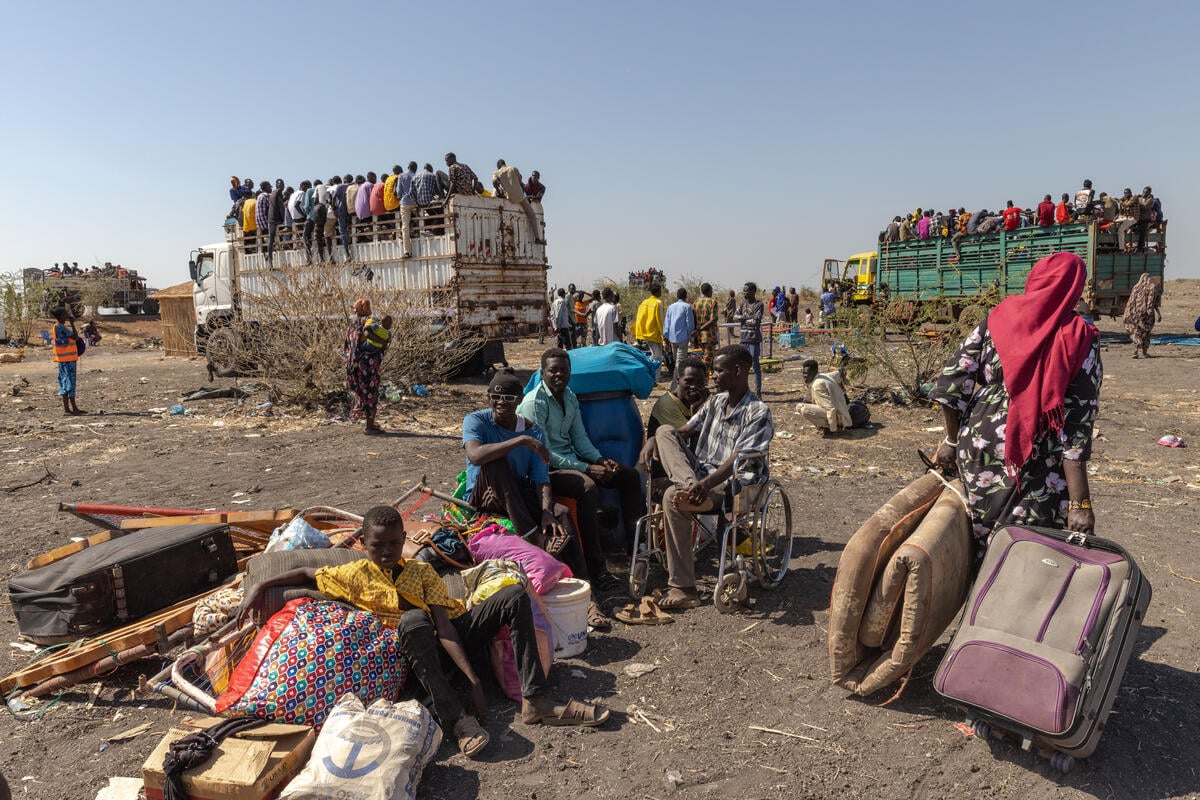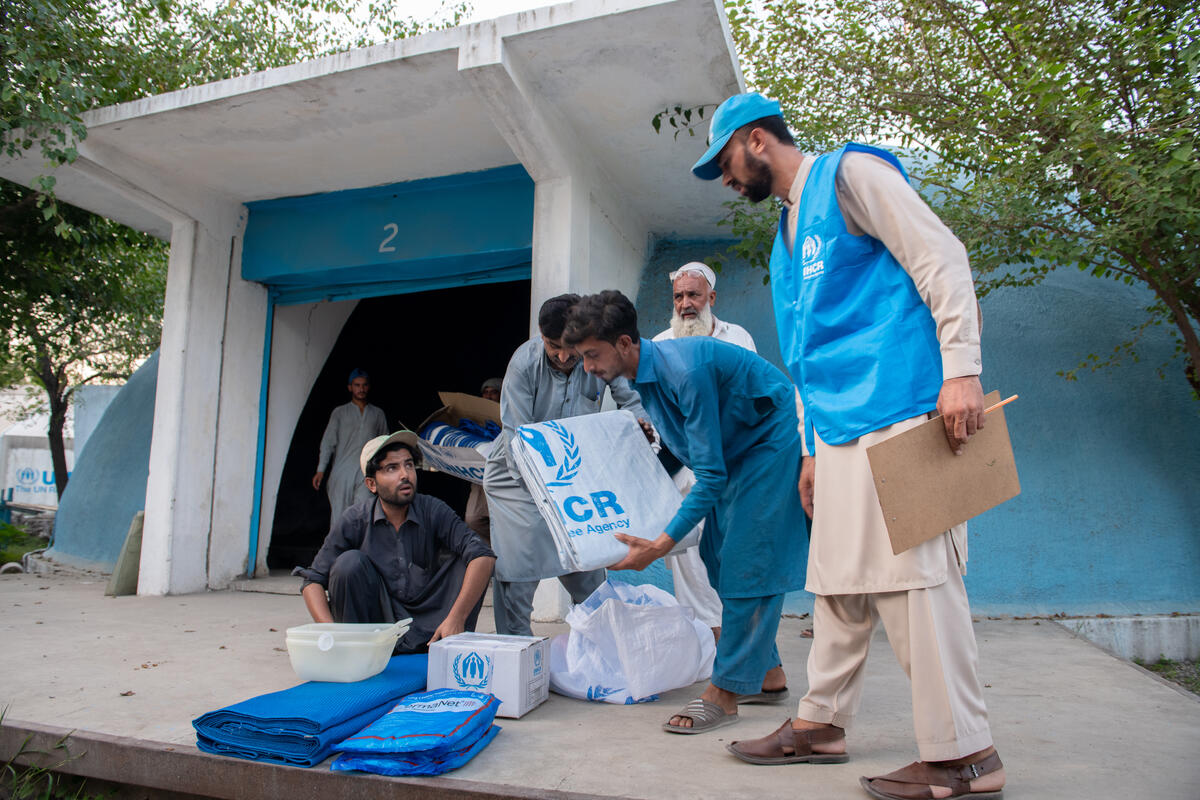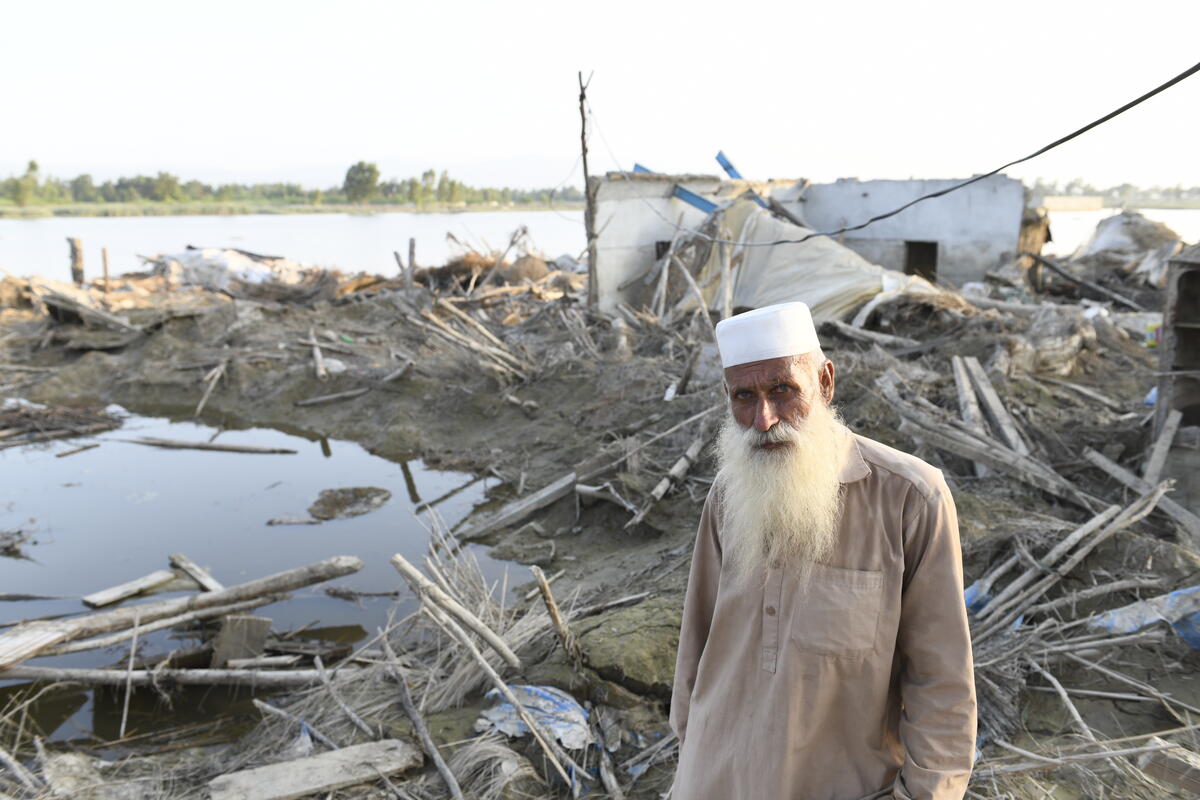Afghanistan Humanitarian Update No. 7
Afghanistan Humanitarian Update No. 7
At a Glance:
- Border crossing points into Pakistan remain more or less closed to Afghans without travel documents.
- Staff from UN agencies, non-governmental organizations and the Pakistan government plan to travel Wednesday to evaluate 75 potential camp sites in Pakistan's North-West Frontier Province.
- UNHCR in Quetta is still in discussions with local authorities on the situation of some 10,000-20,000 Afghans waiting on the Afghanistan side of the border.
- Spontaneous returns of Afghans from Iran drop significantly.
Pakistan
UNHCR monitors report that all border entry points in the Peshawar region remain closed to new arrivals. Pakistan police at the border, while allowing people with documents to cross into Pakistan, continue to stop and send back other Afghans attempting to enter the province. However, small numbers of Afghans have managed to reach Peshawar and the surrounding areas. UNHCR has four roving monitors covering Torkham, Miran Shah, Nawa Pass, Bajar, Kurram and Alizai border crossings.
On Wednesday, four teams of UN, non-governmental organization and Pakistan government staff are scheduled to travel to six tribal areas in the North-West Frontier Province to inspect potential sites for new Afghan arrivals. Authorities in the North-West Frontier Province have designated 100 sites for possible new Afghan arrivals, which could accommodate up to 1 million people.
The joint teams will visit some 75 sites in North Waziristan, South Waziristan, Lower Dir, Kurram, Khyber and Mohmand and evaluate their suitability in terms of water and sanitation, health considerations, accessibility, storage capacity and security. The first camps are expected to be operational, should the need arise, within a week to ten days.
UNHCR is sending six staff on the four-day mission, including field officers, a site engineer and a logistician. The World Food Programme (WFP), UNICEF, the World Health Organization (WHO), the Danish Aid Agency for Afghan Refugees, the International Rescue Committee and Médecins Sans Frontières are also joining the mission.
In Quetta, UNHCR is still in discussions with local authorities on the situation of some 10,000-20,000 Afghans waiting on the Afghan side of the border. UNHCR and the other aid agencies in Quetta are prepared to move at very short notice to assist these people, once we receive the final go-ahead.
According to a plan being discussed with the local authorities, the refugees would be registered by four joint UNHCR/government teams and then transported to an old refugee site at Dara, some 12 kms from the border. There they would receive tents, food and other relief items.
Discussions today centered on the situation for the most vulnerable people waiting at the border. The provincial authorities assured that they were dealing with the most serious cases on a case-by-case basis and would allow them in for medical attention.
UNHCR brought a convoy containing 2,000 tents, 6,000 quilts, 2,000 kitchen sets, and 4,000 buckets to Quetta three days ago. These are now stored in the WFP warehouse, ready to be loaded onto trucks for the border as soon as we get permission to move. UNICEF and WHO are on standby to cover the medical sector, while WFP will provide food. UNICEF is also ready to help the local authorities and non-governmental organizations in providing water and sanitation facilities.
A UNHCR team which visited the Chaman border on Sunday estimated there were 5,000-10,000 people waiting in the open on the other side, with no shelter. Groups of women and children were visible sitting in forlorn groups with their baggage. A similar, or perhaps even larger, number is believed to be sheltering in the bazaar nearby. While it is not clear from a distance whether or not all these people are potential civilian refugees, it is likely that many of them are.
At least two women gave birth at the border over the past week. They were allowed to enter Pakistan, given medical treatment and then sent back. There are also unconfirmed reports of outbreaks of diarrhoea. Both UNHCR and several local officials we have talked to are concerned that conditions for some of those at the border could deteriorate, and we hope that those in need will be admitted soon.
Iran
In Iran, UNHCR and Iranian government refugee officials continue to identify potential camp sites for possible new arrivals in the border area. A total of 12 proposed sites have been identified so far - ten in Khorasan province and two in Sistan-Balochistan province. No new arrivals in Iran have been reported since the September 11 terrorist attacks in the United States.
The number of Afghans spontaneously returning to Afghanistan from Iran has fallen sharply from about 600 people a day to less than 200 a day - the first such drop since June.
Funding
UNHCR has received pledges of US $ 6.8 million in start-up funds to finance the setting up of a large-scale relief operation to tackle a possible influx of Afghan refugees into neighbouring countries. A much more substantial appeal for funding is currently being put together and will be launched later this week.









